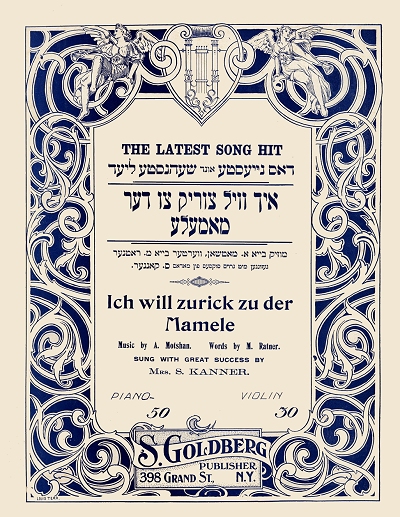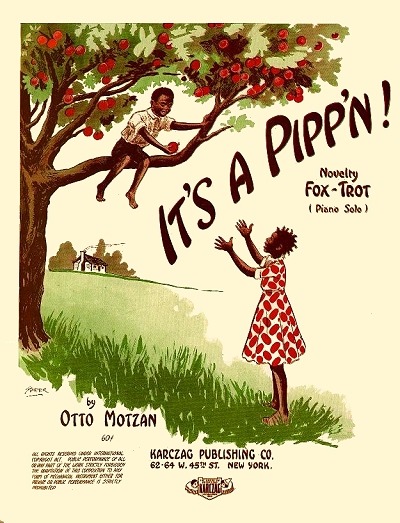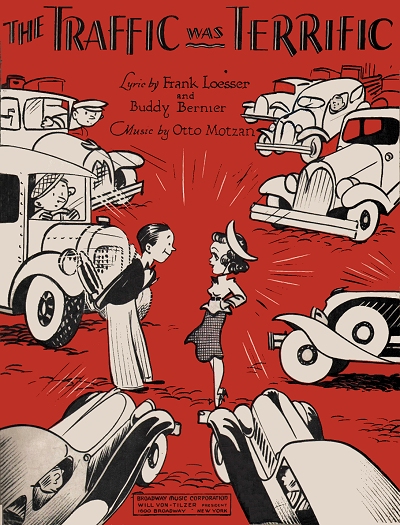While ragtime is considered to be an American music genre, it is actually a relatively universal musical form that was often embraced by composers and performers from foreign shores, many who became American institutions themselves. One of the lesser-known but still active proponents of ragtime and Tin-Pan Alley music was Otto Motzan. He was born in Pressburg, Hungary, to Jacob Motzan (possibly Motshan) and Sophie Grobard. The reported birth year of 1880 had variations from 1877 to 1885, but most official documents point to 1880. He had at least two known siblings, including Sylvia and Adolph, and the family was of the Jewish faith. Otto had training in both Hungarian and Austrian schools in violin, piano, theory, harmony and composition. Among those he both trained and worked with in some capacity was Merry Widow composer Franz Lehar, ten years his senior. They were both members of the Royal Austrian Military Band led by Lehar's father, where Franz played the harp and Motzan presumably the violin.
The reported birth year of 1880 had variations from 1877 to 1885, but most official documents point to 1880. He had at least two known siblings, including Sylvia and Adolph, and the family was of the Jewish faith. Otto had training in both Hungarian and Austrian schools in violin, piano, theory, harmony and composition. Among those he both trained and worked with in some capacity was Merry Widow composer Franz Lehar, ten years his senior. They were both members of the Royal Austrian Military Band led by Lehar's father, where Franz played the harp and Motzan presumably the violin.
 The reported birth year of 1880 had variations from 1877 to 1885, but most official documents point to 1880. He had at least two known siblings, including Sylvia and Adolph, and the family was of the Jewish faith. Otto had training in both Hungarian and Austrian schools in violin, piano, theory, harmony and composition. Among those he both trained and worked with in some capacity was Merry Widow composer Franz Lehar, ten years his senior. They were both members of the Royal Austrian Military Band led by Lehar's father, where Franz played the harp and Motzan presumably the violin.
The reported birth year of 1880 had variations from 1877 to 1885, but most official documents point to 1880. He had at least two known siblings, including Sylvia and Adolph, and the family was of the Jewish faith. Otto had training in both Hungarian and Austrian schools in violin, piano, theory, harmony and composition. Among those he both trained and worked with in some capacity was Merry Widow composer Franz Lehar, ten years his senior. They were both members of the Royal Austrian Military Band led by Lehar's father, where Franz played the harp and Motzan presumably the violin.Motzan immigrated to the United States around 1907. He soon found work as a violinist, and then quickly graduated to the role of orchestra conductor, both with his own group and for singer Belle Baker. His first American-published compositions appeared in 1909, part of a set of semi-popular Yiddish tunes to texts by Mosheh Ratner and Louis Gilrod issued through 1913, probably in tune with his earlier musical training and European heritage. The 1910 census showed Otto boarding in Manhattan, and working as a theater musician. It was likely in that role that he met pioneering vaudeville performer Lew Leslie [a.k.a. Lewis Lessinsky], later famous for his presentation of African-American-based shows, and with whom in 1911 Otto penned some of his first popular pieces in English. Motzan's first of several instrumentals appeared the following year, and he was soon welcomed into the Tin-Pan Alley songwriting community, as noted in a New York Clipper mention on December 28, 1912:
Otto Motzan, the well known European composer, who was "discovered" by the Jos. W. Stern Co., is now under contract to write exclusively for that firm... Mr. Motzan is the writer of Belle Baker's famous songs, and was her musical director on several of her national tours. He has a large circle of friends in the profession who will no doubt be glad to hear that he is to stay in this country permanently. Mr. Motzan will be glad to receive all his old friends and make new ones at his new quarters...
 In 1913 Otto tried his hand at writing his own lyrics for the novelty song My Egyptian Mummy, but this was a rarity, as he most wrote with other lyricists—well over 65 of them by the end of his career. His first prolific partner was Schuyler Greene,with whom he continued from 1913 to 1916. Among their more notable works was Marching on to Victory, which was dedicated to the Women's Suffrage Movement, and indeed adopted by them in 1913 as their official anthem. With Greene, Motzan found his footing as a popular music composer with some gift for melody. From 1914 to 1916 Otto turned out a few instrumental pieces, including dance tunes, waltzes, a piano rag, a cakewalk (an earlier genre that was briefly in vogue again in 1915), an a tango. He and Greene, along with no less than Jerome Kern, turned out a Charles Chaplin-themed tune, The Chaplin Walk, at the beginning of the comedic film actor's rising popularity. As of the spring and summer of 1914, Otto was leading his "tango orchestra" at Niemeyer's Caberet at the foot of Harlem on East 125th Street. He continued such gigs over the next year in various New York theaters and night spots. The 1915 census showed Otto still rooming in upper Manhattan, but he was now more appropriately listed as a songwriter.
In 1913 Otto tried his hand at writing his own lyrics for the novelty song My Egyptian Mummy, but this was a rarity, as he most wrote with other lyricists—well over 65 of them by the end of his career. His first prolific partner was Schuyler Greene,with whom he continued from 1913 to 1916. Among their more notable works was Marching on to Victory, which was dedicated to the Women's Suffrage Movement, and indeed adopted by them in 1913 as their official anthem. With Greene, Motzan found his footing as a popular music composer with some gift for melody. From 1914 to 1916 Otto turned out a few instrumental pieces, including dance tunes, waltzes, a piano rag, a cakewalk (an earlier genre that was briefly in vogue again in 1915), an a tango. He and Greene, along with no less than Jerome Kern, turned out a Charles Chaplin-themed tune, The Chaplin Walk, at the beginning of the comedic film actor's rising popularity. As of the spring and summer of 1914, Otto was leading his "tango orchestra" at Niemeyer's Caberet at the foot of Harlem on East 125th Street. He continued such gigs over the next year in various New York theaters and night spots. The 1915 census showed Otto still rooming in upper Manhattan, but he was now more appropriately listed as a songwriter.On May 3, 1916, Otto was married to Rhode Island native Ethel Burton in Manhattn. More fame came to the composer when he was picked by entrepreuner Jacob Shubert to write music with fellow Hungarian/Austrian songwriter Sigmund Romberg, actually a few years his junior, and lyricist Harold Atteridge, to compose the bulk of works for the fifth edition Passing Show of 1916, staged at the storied Winter Garden Theater where singer Al Jolson found his initial fame. This highly popular show, which played from June until October of 1916, also included the first inclusion in a stage show of a song by future American icon, George Gershwin. Motzan and Atteridge were further engaged by Shubert to add a couple of pieces to that year's Show of Wonders, also at the Winter Garden. Along with Romberg, they also populated the sixth edition Passing Show of 1917 with the majority of its musical numbers. His continuing efforts were noted in an article in the Music Trade Review of May 5, 1917:
Along with Romberg, they also populated the sixth edition Passing Show of 1917 with the majority of its musical numbers. His continuing efforts were noted in an article in the Music Trade Review of May 5, 1917:
 Along with Romberg, they also populated the sixth edition Passing Show of 1917 with the majority of its musical numbers. His continuing efforts were noted in an article in the Music Trade Review of May 5, 1917:
Along with Romberg, they also populated the sixth edition Passing Show of 1917 with the majority of its musical numbers. His continuing efforts were noted in an article in the Music Trade Review of May 5, 1917:With the opening of "The Passing Show of 1917" at the Winter Garden, New York, Otto Motzan, the well-known composer, will have succeeded in closing one of the biggest seasons in his career, as he contributes much of the music for that production. This will make the third Winter Garden production in which he has had a hand, and when consideration is given to the fact that many successful numbers have also been products of his pen this season, it must be conceded he has had a wonderful year... From the foregoing it must be admitted Otto Motzan is coming into his own.
Motzan's draft record from the final call on September, 1918, showed him living in Manhattan on W. 112th Street with Ethel, and working as an independent composer of music. Whether he would have served or not in a war against the very part of the world he came from is unclear, but also moot. However, his promise to remain in America gained more credence when he was naturalized as an American citizen on December 4, 1918.
While Otto's output slowed somewhat from 1918 forward, it was in part because he was still working now and then as an arranger or conductor for smaller theaters and summer venues. It was not clear if he ever recorded in any capacity, but this may be a possibility, given the growth of recording companies from the late 1910s into the 1920s. A promised operetta that was mentioned in the trades in 1918 never materialized, although some of the individual works may have been published. The 1920 census yielded no results, so he may have been on the road that January. One of Motzan's most popular and best-known pieces was issued by Waterson, Berlin and Snyder in 1920, Bright Eyes, composed with M.K. Jerome and lyricist Harry B. Smith. In later years he would revisit the tune with two sequels, Tell Me, Bright Eyes (1925) and Where Did You Get That Pair of Big Bright Eyes? (1932). Otherwise, most everything issued over the next decade was standard popular fare and ballads, with scattered instrumentals, vitually none of it in the "hit" category. Most were distributed among various publishers, including during the 1910s, some by Karczag publishing started by yet another Austrian compatriate of Motzan and Lehar, theatrical producer Wilhelm Karczag. However, a few works, including his waltz Moon-Glow, were self-issued by his Golden Rule Publishing Company, founded in mid-1922.
Most were distributed among various publishers, including during the 1910s, some by Karczag publishing started by yet another Austrian compatriate of Motzan and Lehar, theatrical producer Wilhelm Karczag. However, a few works, including his waltz Moon-Glow, were self-issued by his Golden Rule Publishing Company, founded in mid-1922.
 Most were distributed among various publishers, including during the 1910s, some by Karczag publishing started by yet another Austrian compatriate of Motzan and Lehar, theatrical producer Wilhelm Karczag. However, a few works, including his waltz Moon-Glow, were self-issued by his Golden Rule Publishing Company, founded in mid-1922.
Most were distributed among various publishers, including during the 1910s, some by Karczag publishing started by yet another Austrian compatriate of Motzan and Lehar, theatrical producer Wilhelm Karczag. However, a few works, including his waltz Moon-Glow, were self-issued by his Golden Rule Publishing Company, founded in mid-1922.For the 1930 enumeration, Otto was shown as a lodger in Manhattan, having been divorced from Ethel at some point in the 1920s. His occupation was listed as both a composer and music publisher. However, now in his fifties, his releases were increasingly sparse. His last known published piece was a somewhat popular love song, The Traffic Was Terrific, co-written with a young Frank Loesser (Guys and Dolls) and Buddy Bernier. [Some accounts of Motzan suggest that this was released under the pseudonym Josie de Guzman, but copyright records and the sheet music itself cannot support this claim, and no association was found with the female singer of the same name.] Then Otto retreated, but reported started working on an operetta based on the writings and life of Mark Twain (a.k.a. Samuel Clemens). On January 15, 1937, Otto Motzan was taken by a heart attack in his apartment at the Hotel Whitehall just north of Central Park. He was survived by his siblings, both living the in United States, but the funeral arrangements were ultimately taken care of by ASCAP, which he had joined as a charter member in 1914. His music is rarely heard today, but occasionally a gem will appear at a jazz or ragtime festival, and that international appeal of "American" music is once again realized as part of the melting pot of the United States.
 Compositions
Compositions